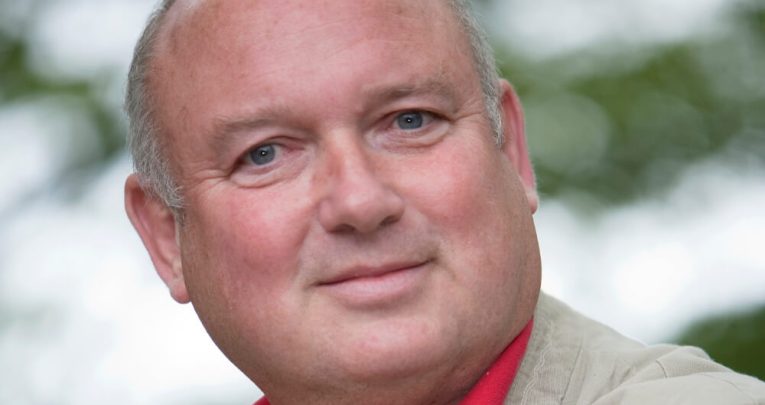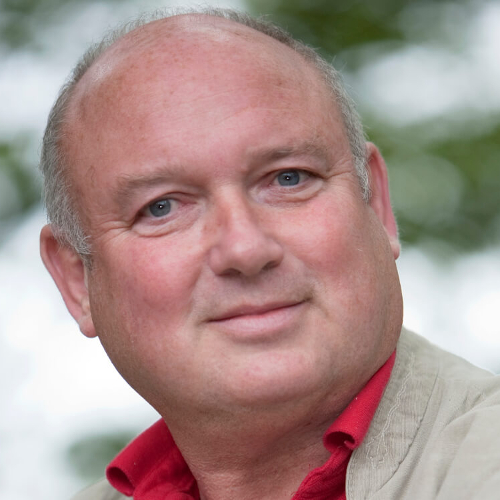“The Headteacher was a Sadist. His Deputy, Meanwhile, was a Paedophile” – What Louis de Bernières Learnt at School

Author Louis de Bernières spent many years as a teacher – and it’s not a role he’s keen to revisit…

I have nice memories of my primary school. It was called St Nicholas, on the top of a hill, in Orpington. Sometimes, I’d go in with my hamster in a pocket.
More often, though, my sister and I would carry our roller skates with us, so we could skate back down the hill at the end of the day, she behind me, holding on to my waist.
We’d go so fast, we could only stop by crashing into our garage door; after he’d repainted it, our father forbade us from doing that any more.
I remember being forced to have a rest after lunch, even though I wasn’t sleepy; and a Russian teacher, whose name I couldn’t possibly spell now, who used to wear her hair piled on her head and was rather beautiful, actually.
And I also remember winning the three-legged race, lashed to a Californian girl called Jill Rendleman with whom I was totally in love. I still have the photo of us holding the cup.
Harsh lines
At the age of eight, I was sent to a prep school in Birchington, Kent. Grenham House was a brutally violent establishment, which happily doesn’t exist any more.
The headteacher was a sadist – he’d been tortured during the war, and took it out on us. He had lash marks on his back.
His deputy, meanwhile, was a paedophile. We liked him better.
You survived by shutting off emotionally, completely, at the start of term, and staying that way until the holidays.
I did have two excellent teachers – one who taught English, and the other who taught history and geography.
And I’m grateful to have had the chance to learn Latin, which gave me instant access to most modern romantic languages, as well as a taste for the classical world. I would have preferred Greek, though.
I escaped Grenham House when I was 13, and went to Bradfield College, a public school in Berkshire, which was characterised by a cult of muscular Christianity.
We were being trained as little Spartan warriors (which I quite liked), and expected to do sports every day (which is a good idea; I wish my own children were expected to do likewise).
I had two extraordinarily brilliant English teachers – one was a modern intellectual type, who wanted us to understand The Wasteland; the other was a Shakespearean actor, who would act out all the parts for us.
I also had a French teacher who was filled with contempt for me. He once flung an essay back at me calling it “pseudo-intellectual rubbish”. To which all I can say is, he was the one asking a teenager to write about existentialism.
Lost genius
Initially, at the prep school, I suspect I was a genius. I was a fast learner, and retained what I learnt. I burnt with intellectual energy. But then the hormones kicked in, and I felt full of melancholy.
I kept the intellectual curiosity up, but I seemed always to be in love with someone who didn’t know I existed. My own son has just hit puberty, and doesn’t seem to have been destroyed by it, which is something of a relief.
He and his younger sister are both prospering under the educational regime they’re in, so I suspect today’s schools must be doing something right.
I’ve had two long term jobs in my life – landscape gardening, and teaching – and if I had to go back to some form of employment other than writing, it would definitely be the gardening.
Teaching is a stressful job; not least, dealing with the other bloody teachers. Schools are full of little dictators – or at least, they were when I worked in them.
That said, the impact you can have on people’s lives is wonderful. I worked in a truancy centre once, and when I met one of the kids afterwards, he said, ‘If not for you, I’d be in prison.’
A girl who came to me at 15 unable to read and write sent me a letter, years later, telling me she’d just got her drama degree. It feels like I’ve had an enormous family.
I think a lot of what holds kids back is a lack of parental ambition for them, and it’s the teachers’ job to be relentlessly, positively ambitious for those young people.
It’s hard, especially when you are almost certain it’s a hopeless case. But if you can prise open the boundaries within which they are living, fantastic things can, sometimes, happen.
Louis de Bernières is a British novelist most famous for his fourth novel, Captain Corelli’s Mandolin. As well as writing, de Bernières plays the flute, mandolin and guitar; his first album, The Songs of Louis de Bernières Vol 1 (Blue House Music) is available from the usual high street and online retailers.








